-
 bitcoin
bitcoin $87959.907984 USD
1.34% -
 ethereum
ethereum $2920.497338 USD
3.04% -
 tether
tether $0.999775 USD
0.00% -
 xrp
xrp $2.237324 USD
8.12% -
 bnb
bnb $860.243768 USD
0.90% -
 solana
solana $138.089498 USD
5.43% -
 usd-coin
usd-coin $0.999807 USD
0.01% -
 tron
tron $0.272801 USD
-1.53% -
 dogecoin
dogecoin $0.150904 USD
2.96% -
 cardano
cardano $0.421635 USD
1.97% -
 hyperliquid
hyperliquid $32.152445 USD
2.23% -
 bitcoin-cash
bitcoin-cash $533.301069 USD
-1.94% -
 chainlink
chainlink $12.953417 USD
2.68% -
 unus-sed-leo
unus-sed-leo $9.535951 USD
0.73% -
 zcash
zcash $521.483386 USD
-2.87%
Which coins need to be mined?
Cryptocurrency mining enables specialized computers to validate transactions, create new coins, and secure blockchain networks, utilizing concepts like Proof-of-Work and Proof-of-Stake.
Jan 11, 2025 at 10:12 pm
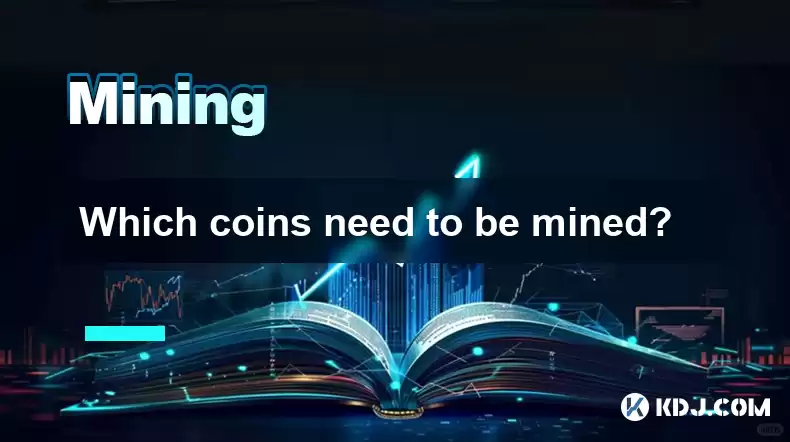
- Understanding Cryptocurrency Mining: Define cryptocurrency mining and its role in validating blockchain transactions and creating new coins.
- Types of Coins that Need to Be Mined: Classify the cryptocurrencies that require mining efforts, their underlying consensus mechanisms (e.g., Proof-of-Work), and their mining algorithms.
- Selecting Suitable Mining Coins: Explore factors to consider when choosing which coins to mine, including profitability, liquidity, transaction volume, and mining difficulty.
- Essential Mining Hardware: Describe various types of mining hardware, their specifications, and their impact on mining efficiency.
- Software and Pool Selection: Guide miners on selecting appropriate mining software and joining mining pools to increase their chances of earning rewards.
- Electricity Considerations: Emphasize the importance of calculating electricity costs and choosing energy-efficient mining equipment to maximize profitability.
- Security and Risk Management: Provide tips on safeguarding crypto mining assets, including securing mining hardware, choosing reputable exchanges, and understanding potential cybersecurity threats.
Cryptocurrency mining is a process where specialized computers known as mining rigs validate transactions on a blockchain network and create new coins. Miners use high-powered hardware to solve complex mathematical problems, which then allows them to add new blocks to the blockchain. This process incentivizes miners to secure the network and ensures its integrity.
2. Types of Coins that Need to Be MinedNot all cryptocurrencies require mining. Coins that use a consensus mechanism like Proof-of-Stake do not require miners to validate transactions. Instead, they rely on validators who hold a certain amount of coins. However, coins that use Proof-of-Work, such as Bitcoin, Ethereum (prior to the merge), Litecoin, Monero, and Dogecoin, necessitate mining.
3. Selecting Suitable Mining CoinsWhen selecting coins to mine, consider factors such as:
- Profitability: Calculate the potential profits based on the coin's current market value and the mining difficulty.
- Liquidity: Ensure the mined coins have sufficient liquidity to be sold or traded easily.
- Transaction Volume: Higher transaction volume indicates increased demand and potentially higher mining rewards.
- Mining Difficulty: Choose coins with a manageable mining difficulty that allows you to generate blocks and earn rewards within a reasonable time frame.
- ASIC Miners: Dedicated hardware designed specifically for mining cryptocurrencies, offering high hash rates and energy efficiency.
- GPUs (Graphics Processing Units): High-performance graphics cards that can be used for mining cryptocurrencies like Ethereum.
- CPUs (Central Processing Units): Standard computer processors that can be used to mine low-difficulty cryptocurrencies.
- Mining Software: Choose reliable mining software that optimizes your hardware's performance and connects you to mining pools.
- Mining Pools: Groups of miners who combine their computing power to increase their chances of finding blocks and sharing rewards.
- Calculating Electricity Costs: Estimate electricity consumption based on the mining rig's power consumption and electricity rates in your area.
- Energy-Efficient Hardware: Choose mining hardware with low power consumption and high efficiency to minimize electricity costs.
- Secure Mining Hardware: Implement physical security measures and follow best practices to protect your mining rig from theft or damage.
- Reputable Exchanges: Only use reputable cryptocurrency exchanges to sell or trade your mined coins.
- Cybersecurity Threats: Be aware of potential cybersecurity threats like malware, phishing, and hacking, and take necessary precautions.
- Q: Why are only some cryptocurrencies mined?
- A: Cryptocurrencies that rely on Proof-of-Work consensus require miners to validate transactions and secure the network through mining.
- Q: What are the risks of mining cryptocurrencies?
- A: Risks include high electricity costs, hardware failure, and potential cyberattacks, which can result in lost profits or stolen assets.
- Q: Can I mine cryptocurrencies with my regular computer?
- A: While CPUs can be used for mining low-difficulty cryptocurrencies, specialized mining hardware like ASIC miners and GPUs offer significantly higher efficiency and hash rates.
- Q: How do I choose a mining software?
- A: Consider factors such as compatibility with your hardware, optimization for the coin you're mining, and stability and reliability.
- Q: What is the best mining pool?
- A: Choose pools based on their size, hash rate, pool fees, and reliability, considering factors that may impact your mining profitability and stability.
Disclaimer:info@kdj.com
The information provided is not trading advice. kdj.com does not assume any responsibility for any investments made based on the information provided in this article. Cryptocurrencies are highly volatile and it is highly recommended that you invest with caution after thorough research!
If you believe that the content used on this website infringes your copyright, please contact us immediately (info@kdj.com) and we will delete it promptly.
- Crypto Coaster: Bitcoin Navigates Intense Liquidation Hunt as Markets Reel
- 2026-02-01 00:40:02
- Bitcoin Eyes $75,000 Retest as Early February Approaches Amid Shifting Market Sentiment
- 2026-02-01 01:20:03
- Don't Miss Out: A Rare £1 Coin with a Hidden Error Could Be Worth a Fortune!
- 2026-02-01 01:20:03
- Rare £1 Coin Error Could Be Worth £2,500: Are You Carrying a Fortune?
- 2026-02-01 00:45:01
- Navigating the Crypto Landscape: Risk vs Reward in Solana Dips and the Allure of Crypto Presales
- 2026-02-01 01:10:01
- NVIDIA CEO Jensen Huang's Take: Crypto as Energy Storage and the Evolving Role of Tech CEOs
- 2026-02-01 01:15:02
Related knowledge
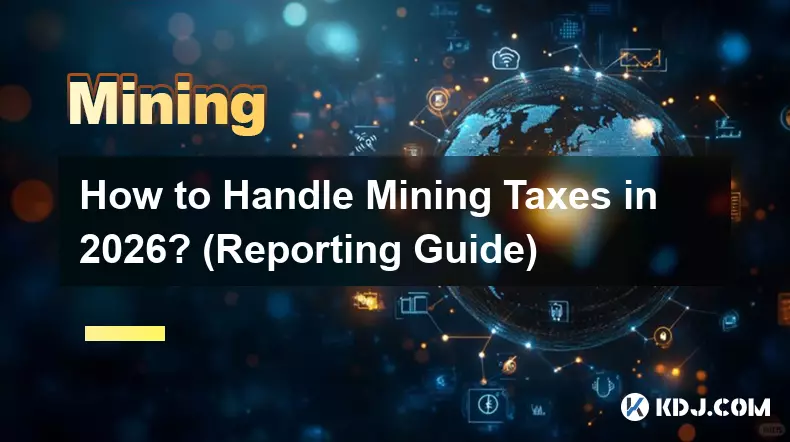
How to Handle Mining Taxes in 2026? (Reporting Guide)
Feb 01,2026 at 01:39am
Tax Classification of Mining Rewards1. Cryptocurrency mining rewards are treated as ordinary income at the fair market value on the date of receipt. 2...
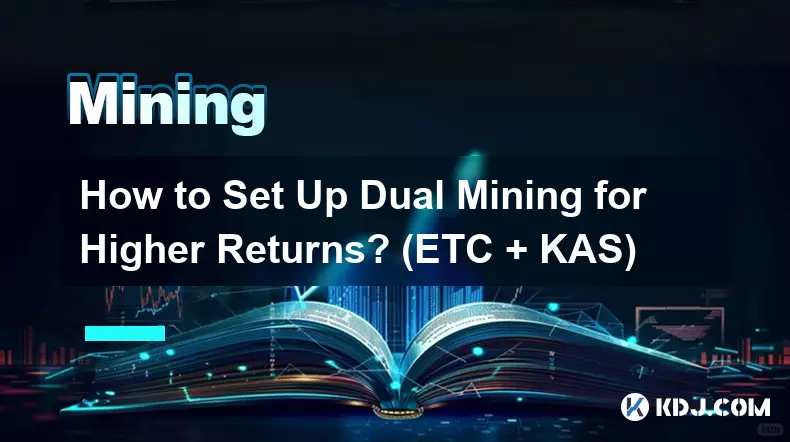
How to Set Up Dual Mining for Higher Returns? (ETC + KAS)
Feb 01,2026 at 02:19am
Dual Mining Fundamentals1. Dual mining allows a single GPU to simultaneously contribute computational power to two different blockchains using compati...
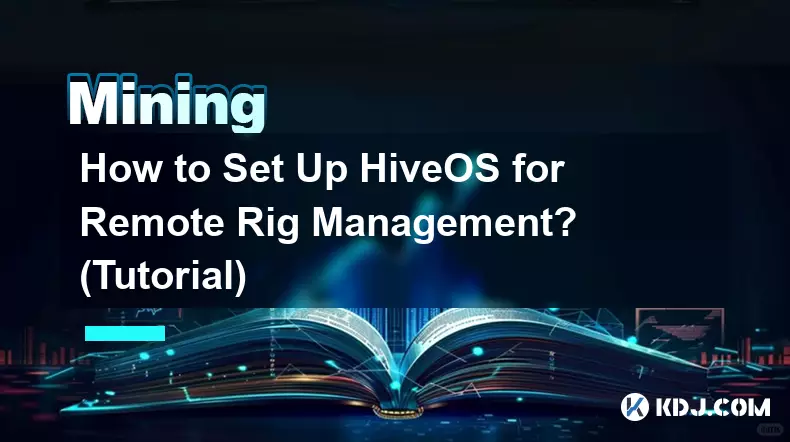
How to Set Up HiveOS for Remote Rig Management? (Tutorial)
Feb 01,2026 at 12:39am
Understanding HiveOS Fundamentals1. HiveOS is a Linux-based operating system specifically engineered for GPU mining rigs, offering lightweight perform...
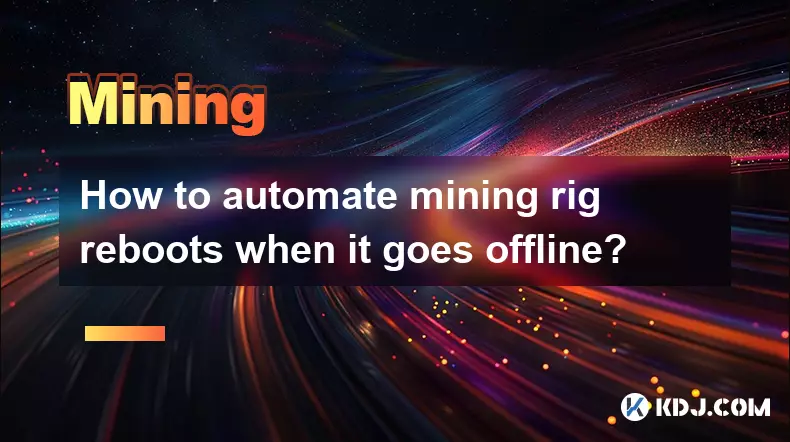
How to automate mining rig reboots when it goes offline?
Jan 23,2026 at 11:00pm
Monitoring System Integration1. Deploy a lightweight agent on the mining rig’s host OS that continuously reports hash rate, GPU temperature, and pool ...
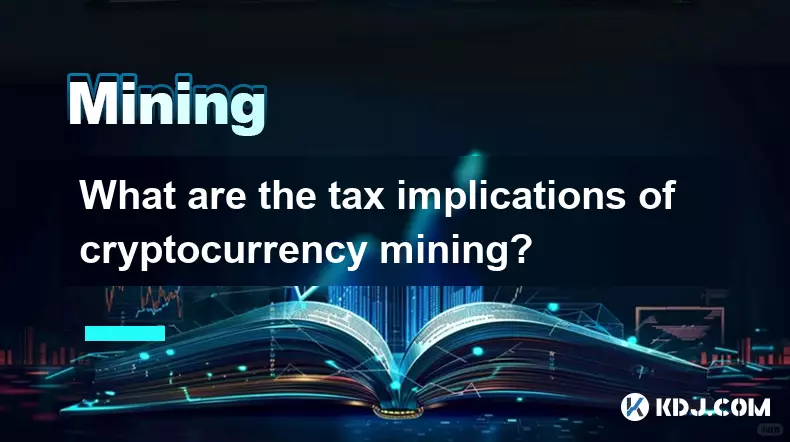
What are the tax implications of cryptocurrency mining?
Jan 23,2026 at 02:40am
Tax Treatment of Mining Rewards1. Cryptocurrency received as a reward for mining is treated as ordinary income by the IRS at the fair market value on ...
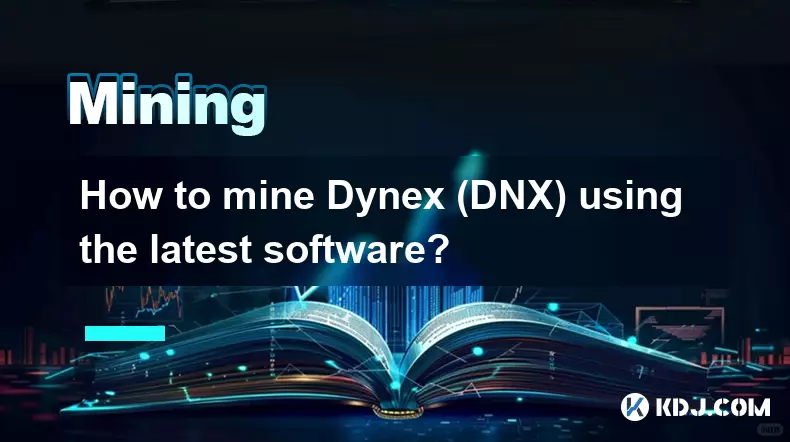
How to mine Dynex (DNX) using the latest software?
Jan 22,2026 at 10:00am
Understanding Dynex Mining Fundamentals1. Dynex (DNX) operates on a proof-of-work consensus mechanism optimized for neuromorphic computing workloads, ...

How to Handle Mining Taxes in 2026? (Reporting Guide)
Feb 01,2026 at 01:39am
Tax Classification of Mining Rewards1. Cryptocurrency mining rewards are treated as ordinary income at the fair market value on the date of receipt. 2...

How to Set Up Dual Mining for Higher Returns? (ETC + KAS)
Feb 01,2026 at 02:19am
Dual Mining Fundamentals1. Dual mining allows a single GPU to simultaneously contribute computational power to two different blockchains using compati...

How to Set Up HiveOS for Remote Rig Management? (Tutorial)
Feb 01,2026 at 12:39am
Understanding HiveOS Fundamentals1. HiveOS is a Linux-based operating system specifically engineered for GPU mining rigs, offering lightweight perform...

How to automate mining rig reboots when it goes offline?
Jan 23,2026 at 11:00pm
Monitoring System Integration1. Deploy a lightweight agent on the mining rig’s host OS that continuously reports hash rate, GPU temperature, and pool ...

What are the tax implications of cryptocurrency mining?
Jan 23,2026 at 02:40am
Tax Treatment of Mining Rewards1. Cryptocurrency received as a reward for mining is treated as ordinary income by the IRS at the fair market value on ...

How to mine Dynex (DNX) using the latest software?
Jan 22,2026 at 10:00am
Understanding Dynex Mining Fundamentals1. Dynex (DNX) operates on a proof-of-work consensus mechanism optimized for neuromorphic computing workloads, ...
See all articles





















![THIS IS THE HARDEST COIN TO GET [POLY DASH] THIS IS THE HARDEST COIN TO GET [POLY DASH]](/uploads/2026/01/31/cryptocurrencies-news/videos/origin_697e0319ee56d_image_500_375.webp)




















































